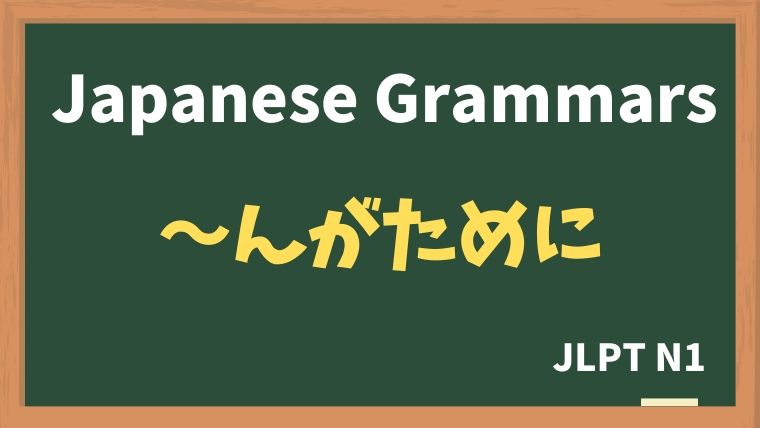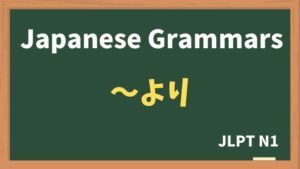
Explanation:〜んがために
fa-check-circleMeaning
"〜するために"
"in order to do something"
Used to indicate a strong purpose or intention to achieve something, often with a sense of formality or seriousness. It conveys the idea of taking a particular action in order to accomplish a significant goal. This phrase is formal and is often found in written language or serious contexts.
fa-check-circleForm
V(nai form)+ んがために
※「する」は「せんがために」
fa-check-circlePoints
- Strong Purpose or Intention: "〜んがために" emphasizes that an action is taken with a strong intention or determined purpose to achieve a certain goal.
- Formal and Literary: This expression is formal and is used in serious or literary contexts rather than in everyday conversation.
fa-check-circleJLPT Level
N1
fa-check-circleNote
古い言い方なので、会話ではあまり使いません。
Sample sentenes
JLPT N1に合格せんがために、毎日頑張って勉強している。
To pass JLPT N1, I study hard every day.
自然を守らんがために、プラスチック製のストローやビニール袋などは廃止すべきだ。
To protect nature, plastic straws and bags should be abolished.
生きんがために、毎日一生懸命働いている。
To survive, I work hard every day.
第一志望の大学に合格せんがために、毎日頑張ってきた。
To get into my first-choice university, I've been working hard every day.
溺れている子供を助けんがために、彼はプールに飛び込んだ。
To save the drowning child, he jumped into the pool.
彼はお金を得んがために、犯罪を犯してしまった。
To get money, he committed a crime.
命を救わんがために、医者たちは懸命に手術を行った。
The doctors performed the surgery with the purpose of saving the patient's life.
新しい市場を開拓せんがために、会社は多くの資金を投入した。
In order to develop new markets, the company invested a lot of capital.
Vocabulary
| Japanese |
English | |
| 溺れる | おぼれる | to drown |






